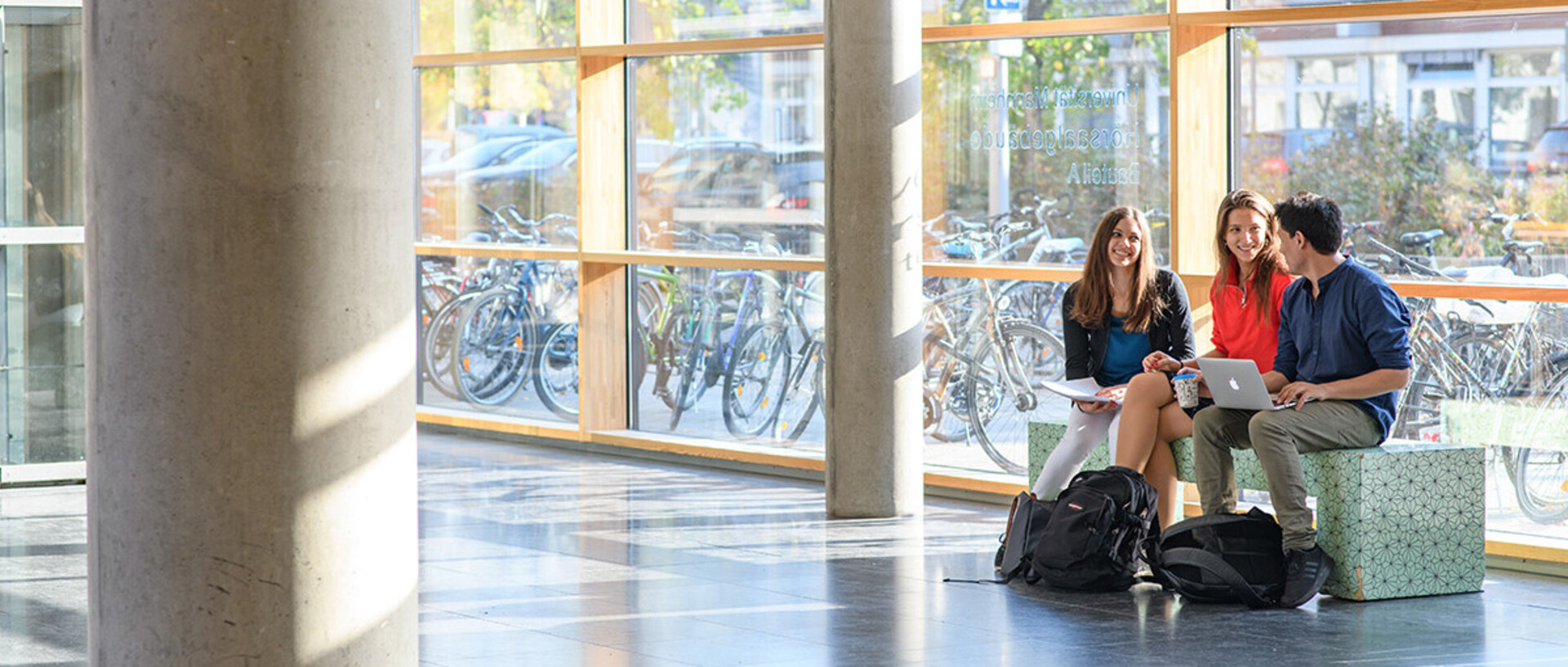Courses for Master Candidates
| Code | Title | Lecturer | Type | Semester | ECTS |
|---|---|---|---|---|---|
| IE 500 | Data Mining | Prof. Dr. Bizer / Prof. Dr. Paulheim | Lecture / Practical exercises / Student project | Fall / Spring | 6 |
| CS 460 | Database Technology | Prof. Dr. Paulheim | Lecture / Practical exercises | Spring | 6 |
| CS 560 | Large-Scale Data Management | Prof. Dr. Gemulla | Lecture / Practical exercises | Fall | 6 |
| IE 560 | Foundations of AI: Reasoning and Decision Making | Prof. Dr. Heiner Stuckenschmidt | Lecture / Practical exercises | Fall | 6 |
| CS 646 | Higher Level Computer Vision | Prof. Dr. Margret Keuper | Lecture / Practical exercises | Fall | 6 |
| IE 695 | Reinforcement Learning | Prof. Dr. Margret Keuper | Lecture / Practical exercises | Fall | 6 |
| IE 647 | Image Processing | Prof. Dr. Margret Keuper | Lecture / Practical exercises | Spring | 6 |
| CS 668 | Generative Computer Vision Models | Prof. Dr. Margret Keuper | Lecture / Practical exercises | Spring | 6 |
| IE 650 | Knowledge Graphs | Prof. Dr. Paulheim | Lecture / Practical exercises | Fall | 6 |
| IE 661 | Text Analytics | Prof. Dr. Ponzetto | Lecture / Practical exercises | Fall | 6 |
| IE 663 | Information Retrieval and Web Search | Dr. Daniel Ruffinelli / Prof. Dr. Ponzetto | Lecture / Practical exercises / Student project | Fall | 3+3 |
| IE 670 | Web Data Integration | Prof. Dr. Bizer | Lecture / Tutorials / Student project | Fall | 3+3 |
| IE 671 | Web Mining | Prof. Dr. Bizer | Lecture / Tutorials / Student project | Spring | 3+3 |
| IE 686 | Large Language Models and Agents | Dr. Ralph Peeters / Prof. Dr. Bizer | Lecture / Tutorials / Student project | Spring | 3+3 |
| IE 672 | Data Mining II | Prof. Dr. Paulheim | Lecture / Practical exercises / Student project | Spring | 6 |
| IE 675b | Machine Learning | Prof. Dr. Rainer Gemulla | Lecture / Practical exercises | Fall | 9 |
| DS 203 | Responsible AI | Jun.-Prof. Dr. Kellmeyer | Lecture | Fall | 6 |
| IE 678 | Deep Learning | Prof. Dr. Gemulla | Lecture / Practical exercises | Spring | 6 |
| IE 696 | Advanced Methods in Text Analytics | Dr. Daniel Ruffinelli / Prof. Dr. Ponzetto | Lecture / Practical exercises | Spring | 6 |
| IE 689 | Relational Learning | Prof. Dr. Stuckenschmidt / Dr. Meilicke | Lecture / Practical exercises | Fall | 6 |
| IE 694 | Industrial Applications of Artificial Intelligence | Prof. Dr. Stuckenschmidt | Lecture / Practical exercises | Spring | 6 |
| IS 515 | Process Management and Analytics | Prof. Dr. Van der Aa / Prof. Dr. Rehse (BWL) | Lecture / Practical exercises | Fall | 6 |
| IE 692 | Advanced Process Mining | Prof. Dr. Jana-Rebecca Rehse | Lecture / Practical Exercises | Spring | 6 |
| TP | Team Project | Bizer, Keuper, Paulheim, Ponzetto, Stuckenschmidt | Project Seminar | Fall / Spring | 12 |
| CS 704 | AI Seminar | Prof. Dr. Stuckenschmidt | Seminar | Fall / Spring | 4 |
| CS 707 | Data and Web Science Seminar | Prof. Dr. Gemulla | Seminar | Spring | 4 |
| CS 709 | Text Analytics Seminar | Prof. Dr. Ponzetto | Seminar | Fall / Spring | 4 |
| CS 710 | Selected Topics in Data Science Seminar | Prof. Dr. Paulheim | Seminar | Spring | 4 |
| CS 715 | Solving Complex Tasks using LLMs Seminar | Prof. Dr. Bizer | Seminar | Fall / Spring | 4 |
| CS 718 | AI in Fiction and Society Seminar | Prof. Dr. Paulheim | Seminar | Fall | 4 |
| CS 717 | Seminar Computer Vision | Prof. Dr.-Ing. Margret Keuper | Seminar | Fall/ | 4 |
All Master's level courses are taught in English.
Courses from previous semesters are found in the Master Course Archive.
